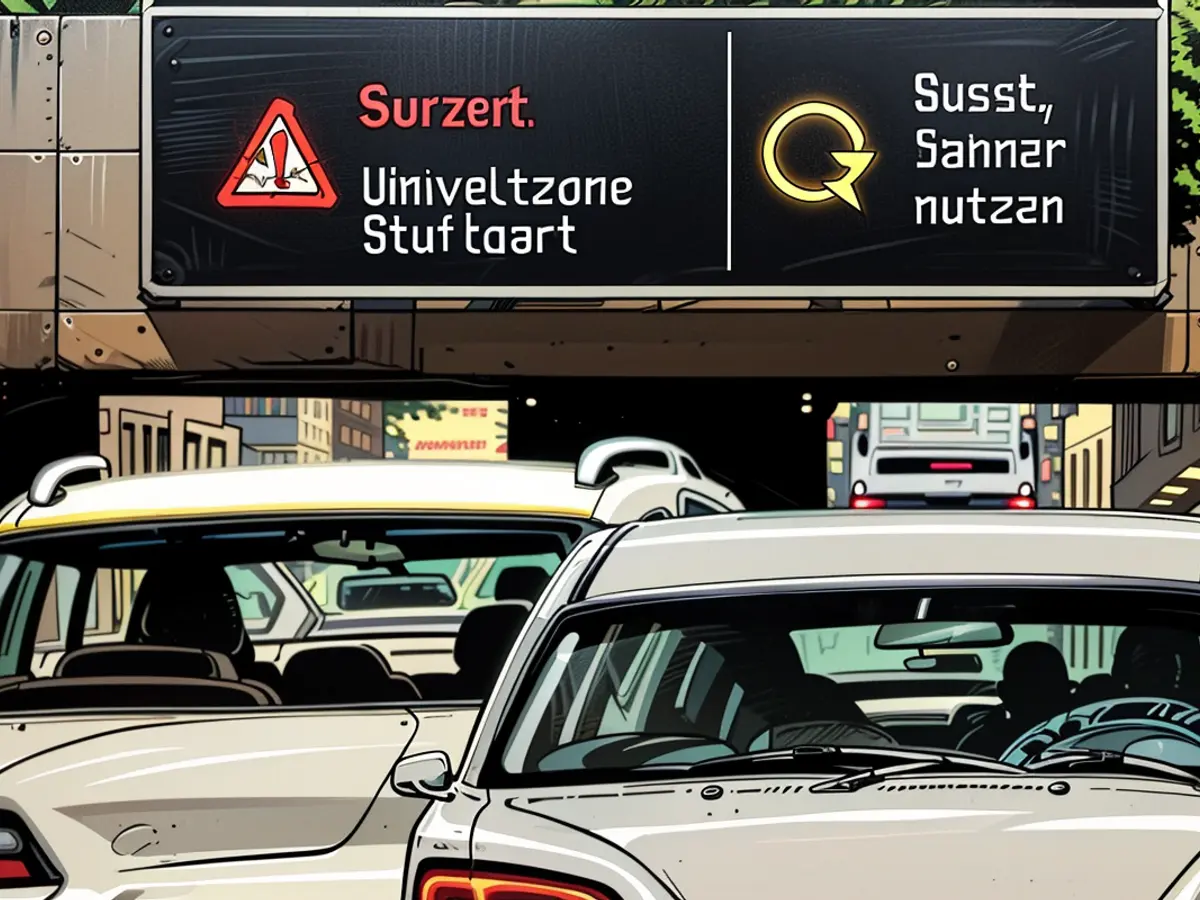Vehicular Movement - Farewell to numerous environmental areas as air no longer thickens.
Recently, cities in Baden-Württemberg introduced measures such as driving bans, speed limits, and road closures to decrease air pollution. The outcomes of these measures have proven successful, resulting in the cancellation of driving restrictions for non-green sticker vehicles in Tübingen, Reutlingen, and Ulm.
The Tübingen area did not possess any other environmental zones. As stated by a representative, the air quality in the region bettered due to the state's and cities' effective air purification measures, such as truck bans. Other contributing factors include the increased usage of home offices and a subsequent lessening in commuter traffic.
Upon the new year, the Stuttgart government took action to abolish environmental zones and consequently lifted the driving ban for vehicles without green stickers in Heidenheim, Heilbronn, Herrenberg, and Leonberg/Hemmingen. In Leonberg, however, trucks are still subject to the through traffic ban.
By May 1, 2023, the environmental zones in Wendlingen am Neckar, Schwaebisch Gmuend, and Ilsfeld and Urbach were already dismantled. As of now, restrictions still remain in effect in Stuttgart and the regional environmental zone Ludwigsburg and its surroundings.
Using a statement from a Stuttgart government representative, the air quality has progressively improved in recent years. They cited factors such as environmental zones for this enhancement. Nitrogen dioxide levels dropped below the yearly average limit of 40 micrograms per cubic meter of air in part. Furthermore, PM10 (particulate matter) limits were achieved across Baden-Württemberg years prior. The NO2 (nitrogen dioxide) limits had been met in Stuttgart by 2021 and in Ludwigsburg by 2022. Nevertheless, the traffic bans in Stuttgart and Ludwigsburg continue to be indispensable since the current NO2 values are still excessive.
In Schramberg, a Freiburg region municipality, the environmental zone was originally ended in 2023. The representative confirmed the likelihood of the abolishment of Freiburg's environmental zone by around spring 2025. They mentioned that NO2 concentrations at the traffic monitoring station in Freiburg-Schwarzwaldstraße decreased from 50 to 25 micrograms per cubic meter in 2023. Due to this, the specified EU limit would be overstepped. They attributed the positive advancement of air quality in Freiburg to the measures set out in the 2019 Air Protection Plan and amends made to the diesel vehicle fleet.
The municipalities of Heidelberg, Karlsruhe, and Pfinztal in the Karlsruhe government district had their environmental zones removed during the summer of 2023.
It is planned for the environmental zones of Mannheim and Mühlacker to be eliminated this year. A public involvement process is underway, with the aim of making it effective from August or September 2024, as per an announcement by a representative.
Read also:
- The Stuttgart Regional Council's environmental policy has led to a decrease in environmental pollution, including nitrogen dioxide and particulate matter levels, in and around Stuttgart.
- Heilbronn, along with several other cities in Baden-Württemberg, has seen improvements in air quality due to the implementation of traffic bans and speed limits, resulting in the potential removal of its environmental zone.
- The city of Fribourg, located outside of Baden-Württemberg, is considering abolishing its environmental zone due to improvements in air quality, specifically a decrease in NO2 concentrations.
- Reutlingen, after seeing success in reducing air pollution, has lifted driving restrictions for non-green sticker vehicles, marking a significant step in its environmental policy.
- The environmental zone in Ludwigsburg, despite improvements in air quality, continues to be important due to excessive NO2 values, highlighting the city's commitment to maintaining clean air.
- Driving bans and speed limits have played a crucial role in reducing traffic and improving air quality in Tübingen, a factor contributing to the area's eventual cancellation of its environmental zone.
- Cities in Baden-Württemberg, such as Leonberg and Herrenberg, have seen the removal of environmental zones due to overall improvements in air quality, spurred by effective environmental policies.
- Environmental zones in cities like Schramberg and Mannheim are understood to be potentially removed in the near future, as a result of decreasing pollution levels and the success of the regions' environmental policies.
- The Tuebingen area, previously lacking other environmental zones, has seen significant improvements in air quality, attributed to state-led air purification measures and a decrease in commuter traffic.
- Urbach and Ilsfeld, located in Baden-Württemberg, have already dismantled their environmental zones, reflecting the region's compliance with European Union regulations and commitment to environmental sustainability.
- Billig Autovermietung in Heidenheim, a local car rental company, considers the removal of driving restrictions a positive change in environmental policy, as it allows for more vehicles to circulate in the area without pollution restrictions.
- Ulm has benefited from the cancellation of driving restrictions for non-green sticker vehicles, making it easier for people to use cars without worrying about environmental zones and driving bans.








